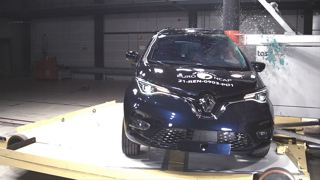By Dr Chris Davies, head of technical research and innovation at Autoglass
The Department for Transport (DfT) recently launched a consultation into the creation of a Road Collision Investigation Branch (RCIB), an independent body set up to investigate road traffic accidents and explore their causes, and what a fascinating time to be lifting the bonnet on collisions in the UK.
This has the potential to be a big step forward for road safety, particularly with the increased use of Advanced Driver Assistance Systems (ADAS) dramatically shifting the way our vehicles are driven and how they interact with each other.
At a time when drivers are handing over more and more control to their vehicles, it’s our hope that the new RCIB will focus on measuring and monitoring the impact of ADAS on driver safety, to ensure drivers and the industry alike can understand how best to use the technology to keep everyone safe on the roads.
ADAS is becoming more prevalent every day, and with the government continuing to take steps towards the legalisation of self-driving cars on UK roads, this is clearly a time of great change for our industry.
When used and maintained correctly ADAS can save lives, and the whole industry should feel empowered to promote the use and wider understanding of the technology so that drivers are comfortable using it. To do that, we need data, and that’s where the RCIB comes in.
ADAS only functions as intended if the sensors are fully operational and correctly recalibrated, but our own research here at Autoglass found that less than half of drivers (48%) in the UK realise that ADAS sensors and cameras need to be recalibrated after a windscreen replacement to ensure that they are relaying the correct information to the driver and vehicle.
Education here is imperative, but it is also essential that the RCIB investigates how many road accidents have been caused by drivers relying on technologies which are not operating as intended.
Such answers will help further demonstrate the importance of accurate ADAS recalibration and the selection of a trusted and experienced supplier to carry out the recalibration.
While the technologies continue to develop, we should remember that legislation does too. From next year, all new car models entering the EU market will need to provide driver monitoring and emergency lane keeping technology, meaning that safety systems requiring a front camera will be compulsory on new models from 2022 (and all new cars in 2024).
Furthermore, the additional need to provide advanced emergency braking with pedestrian and cyclist detection means that a form of front radar will also be required on new models from 2024 (and all new cars in 2026).
It is vital that the RCIB looks into the causes of road accidents ahead of legislation such as these coming into place, and the mandatory rollout of these advanced technologies, so that fair comparisons can be made.
The information the RCIB gathers could play a significant role in encouraging the uptake of ADAS and showing how it can be better managed and maintained.
This is vitally important data at a key moment of change for our industry, and so we should all work together and combine efforts to truly realise the power of ADAS and save lives on the road.
Read more about the Government's proposed accident investigation body in the December edition of Fleet News.



















Login to comment
Comments
No comments have been made yet.